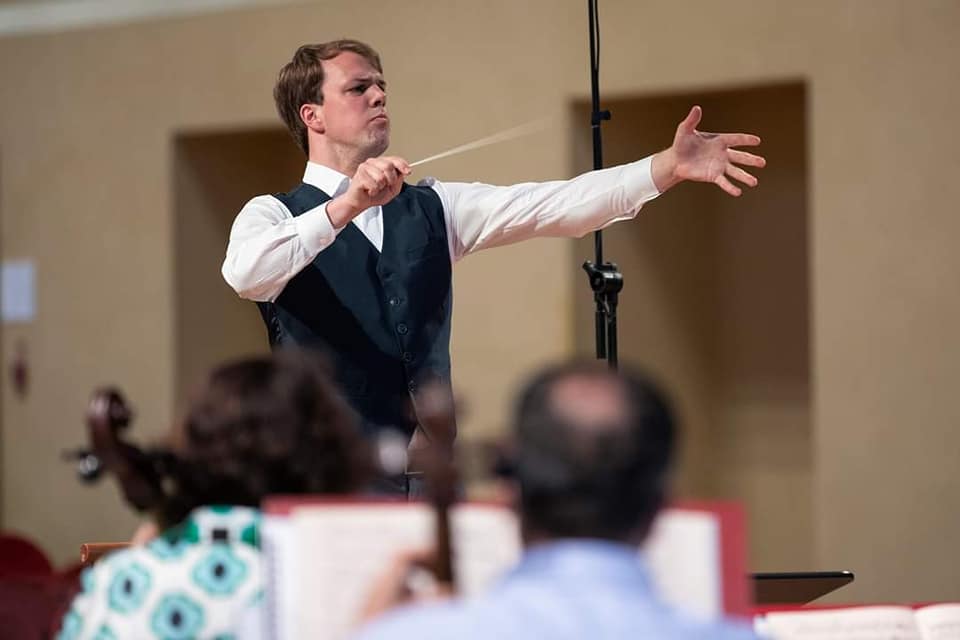Slipped Disc editorial: Why can’t anyone find the right word for Gerard Mortier?
mainNewspapers this morning headline the death of Gerard Mortier. The former head of La Monnaie, Salzburg Festival, Opéra de Paris and Teatro Real is described variously as ‘opera director’ (Financial Times: he never directed), ‘avant-garde opera director’ (Guardian: much of his work was quite traditional), ‘opera impresario’ (LA Times: he was never an investor or businessman), and other things even remoter from reality. Der Spiegel had ‘Musikmanager’, for heaven’s sake.
BBC News, to its shame, headlined him first as ‘Spanish opera director’, then after protest as ‘Spain opera director’, finally as ‘opera director’: all untrue. (Tony Hall, you need to get a grip.)

The New York Times did well with ‘opera visionary’; it captured Gerard’s futuristic impetus. El Mundo came closer, calling him ‘el agitador de la opera’, a man of boundless passion and commitment who refused to let opera continue as it was. But the headlines as a whole showed up the cultural ignorance and linguistic impoverishment of newsdesk journalists, unable to come up with a phrase to capture a man whose name they have never heard and whose function they cannot comprehend.
I remember shifts when a BBC newsroom was staffed by a Hindemith biographer, a poetry publisher and the niece of a well-known painter. When a cultural giant died, we put our heads together and sent them to heaven with an apt label.
‘Opera chief’ would have done for Gerard Mortier; he would have liked that. ‘Opera reinventor’, even better. ‘Opera agitator’ best of all.
The mot juste remains elusive, like the man himself.

photo (c) Marion Kalter/Lebrecnt Music&Arts





It all comes down to who is writing what in the newsroom. If so many journalists these days trot out their “I was sat there” (without, presumably, having the faintest idea of what a passive is and what it represents in semantic terms), think that the past tense of “to lead” is “lead”, believe that “to refute” means exactly the same as “to reject”, accept unthinkingly every Americanism that comes their way (“I was headed for” has now almost entirely displaced the “I was heading for”), produce countless misspellings in captions shown on TV, stumble over correct pronunciation (one BBC Breakfast presenter couldn’t get her lips round “arboretum”) and display yawning gaps in their general knowledge, is it any wonder that they don’t have the wherewithall to react to the death of celebrities in the arts world?
One ‘l’ in wherewithal, Alexander….
…haven’t the slightest idea what he’s blathering about.
Quite simply, Thomas P, it was a typo. I failed to see (before I pressed the “submit” button) that my finger had stayed too long on the letter “l” on the keyboard. The result was that the word “wherewithal” appeared wrongly with two “l”s. Does that clear up the confusion?
Oh dear! If you haven’t the slightest idea why do think I’m blathering.
Thanks Alexander.
Laszlo Molnar on the German website http://www.klassikinfo.de writes a very comprehensive and sympathetic obituary of Mortier’s achievements.
Or, more to the point, the interest.
How about “animateur culturel”, which covers a variety of possible activities, not to mention sins?
I quite like the phrase I just read on the German Zeit website: “Der große belgische Intendant und Kulturermöglicher Gerard Mortier”.
Nice.
The German newspaper Süddeutsche Zeitung titles “Der Magier”, and publishes a really good obituary
Actually, his position and title was clear in the houses where he worked. He was the Artistic Director of opera houses. That’s not an opera stage director, but the person who makes the overall artistic decisions for the house, such as determining the programming, and selecting stage directors, conductors, and singers. This sometimes done in consultation with conductors and stage directors, but the Artistic Director has the final say. Artistic Directors usually also have a major role in directing the house’s business operations.
Artistic Directors formulate the overall artistic vision of the house. Peter Gelb has probably has been strongly asserting this role at the Met, and as is usual in the field, to considerable controversy.
It’s unfortunate that the USA does not have a funding system capable of effectively supporting opera houses. Mortier would have given the NYCO a unique style and brand name that would have strongly distinguished it from the Met, and likely have given it serious competition. This would have been a much needed wake-up call for America’s often provincial concepts of opera production. His death is a loss, indeed.
It’s symptomatic of educational and cultural bankruptcy in journalism and music criticism. Other than Zachary Woolfe’s recent NYT review of the new Manon Lescaut in Rome (in spite of my dislike of everything Anna Netrebko), I cannot recall musical event reviews of any substance in many a year. Too often they read as if written by fans or artists’ public relations. I bet both.
It’s interesting that the post about Mortier’s job description has received more replies than the other four devoted to his passing put together. With that in mind, I’m not so sure the claim that ‘Mortier left no-one indifferent’ is actually true.
what about “tax payers money over-spender”? (do not forget the debt he left behind at the munt/monnaie Or provocateur? (salzburg fledermaus)…..
According to Oxford ‘intendant’ is an English word meaning ‘The administrator of an opera house or theatre.’
Wouldn’t that do for Mortier?
Yes, though it’s strangely under-used in English.